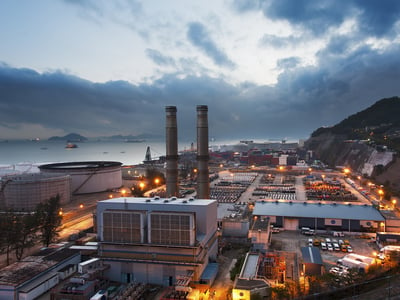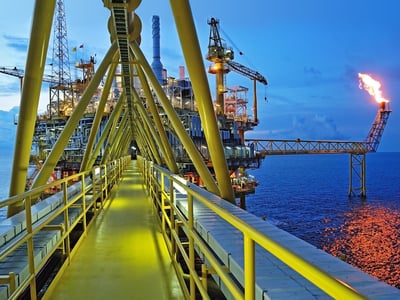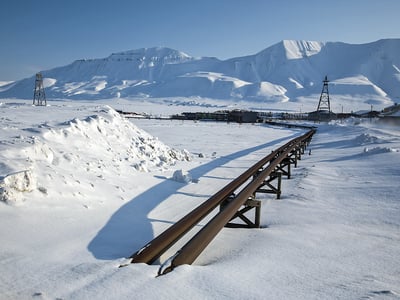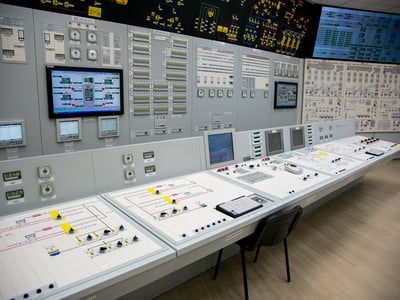Turbomachinery and electrical equipment such as generators need protection against the elements and excessive temperatures with appropriate ventilation for cooling. The ventilation unit's level of protection should be customized based on its surrounding environment to protect against water, salt, and other contaminants.
Adapted air filtration is necessary to ensure long service life and profitability. Camfil's wide selection of air inlet filters are designed to maximize availability, optimize engine efficiency, and ensure worry-free ownership.
The surroundings also need to be protected from the high noise levels generated by the machinery. This is most efficiently done by enclosing the machine to fit the inlet and outlet openings with effective silencers. With an enclosure, you also gain strong protection against fire as well as varying weather conditions.
Our enclosures are designed as an integrated part of the system. Lighting, easy access doors, lifting beams and space for lubrication and fuel systems are often built-in features in our designs. The load-bearing shell of the enclosure, and the outer surfaces, which protect the sound-proofing, are made of painted carbon steel, stainless steel or aluminum.
With test rigs that mimic extreme conditions, from salt & water spray to high air flows and high burst pressure, our R&D group is focused on ensuring reliability. We challenge our products in real site conditions using our mobile testing trailers, the CamLabs, and are always ready to show you actual performance data. Our patented solutions like the CamGT 3V-600 have pushed the industry limits when it comes to water handling capability, salt removal efficiency and lower operating pressure drop. When reliability is critical, your air filters should be just as dependable.
We strive to understand air and local conditions better than anyone else. A little obsessive? Maybe. But, when up to 98% of what goes into your equipment is air, we believe it’s a good thing. By providing the facts you need to empower your decisions, you can optimize output and efficiency. As the most predictable air solutions provider, Camfil keeps your equipment working better and longer, while removing the element of surprise. We help you stay in control.
If you are designing a new system or simply looking to improve your current performance, ask us about our life cycle cost software, our air sampling solutions , or ask for a CamLab test.

Coastal and tropical sites face the added risk of water ingress. Soluble particulate carry-over increases fouling and corrosion risk, especially if salt is present. Filtration should be robust and adapted to handle heavy water loads.

Industrial and urban sites endure high levels of fine corrosive particulates from combustion, and chemical and industrial processes. High-efficiency multi-stage filtration that is compact and robust is recommended.

In dry, coarse dust environments, maintaining low pressure drop and long filter life are key to increasing availability. And when sites are challenged with fine particulates, salt or corrosive contaminants, final high efficiency filtration is recommended.

Offshore installations must manage salt, water ingress and fine particulates from equipment exhaust. Multi-stage, built-in drainage and final hydrophobic high efficiency filtration that’s compact, robust and adapted to heavy water loads is recommended.

In rural and agricultural sites, engines require protection from seasonal contaminants and small particles. Fouling is caused by particles under 1 micron and even in apparently clean environment, high efficiency filtration is a must-have performance booster.

Colder climates bring the added challenges of heavy snow and frost to generators, enclosures and utility buildings. Icing on filters can cause filter blockage, leading to high pressure drop.

Many industries rely on electronic and electrical control equipment for safe and efficient operation. To avoid unscheduled breakdowns, the equipment must be protected from corrosion originating from chemicals used in their manufacturing processes.

High-quality indoor air at the workplace can increase employee health, happiness, well-being and attendance by minimising the spread of disease, allergens and viruses.